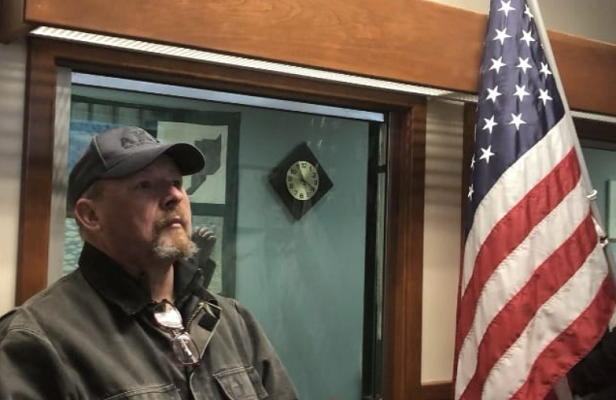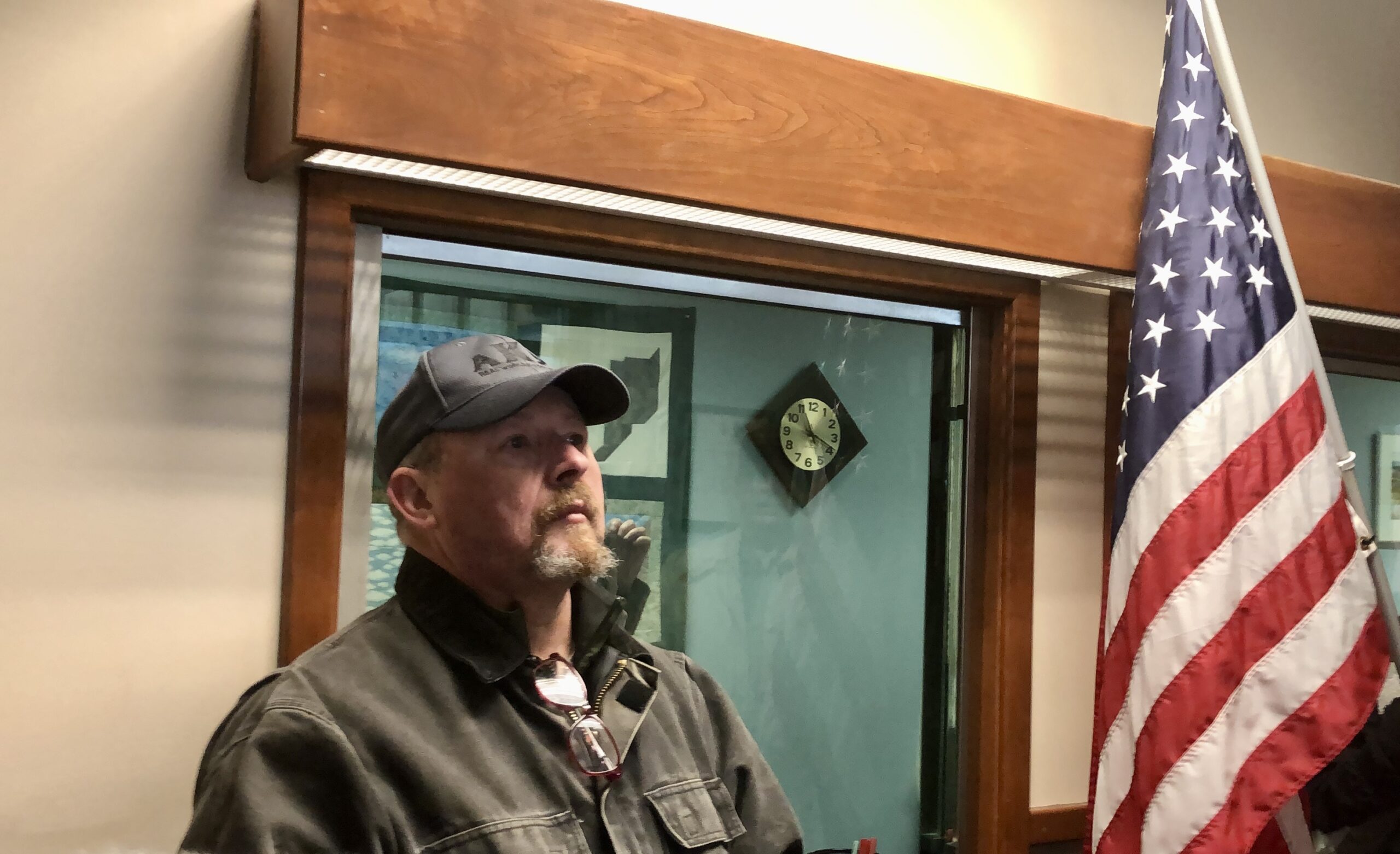Now comes the Appellant Daniel Richard pro se. hereby “objects’ to the reopening of the case in the above-named and numbered Supreme Court case, after the honorable court has closed arguments.
Plaintiff submits it would be fundamentally unfair and a deprivation of plaintiff’s fundamental due process rights for the court to take this unsolicited and extraordinary measure that will unfairly allow the defendants to have a second bite of the apple.
Plaintiff submits; the court was aware during the Supreme Court hearing of November 29, 2023, that his Appeal and ‘complaint’ contain allegations of a constitutional nature, where the plaintiff alleges a denial of constitutional voting rights; that said rights were cited within his complaint; that the plaintiff had an obvious personal stake in the case, and that the plaintiff alleged actual bias and harm caused as a result of said constitutional deprivation.
However well intended, this Court’s solicitation of a brief from the defendants and from friends of the court at this point in the appellate proceeding is extraordinary and appears to try to do by soliciting outside non-parties to what the state has twice declined to do, viz: raise standing in the state answer or in the state’s oral argument. The state’s reasons for not addressing this preliminary issue may be political or it may reflect personal liability of state actors, falling outside the umbrella of indemnity or immunity. Regardless, Appellant suggests it is improper for this unilateral expansion of briefing to outside parties by the highest court judges during appeal when it was not briefed by the state and therefore conceded at the trial court level appears unprecedented as to both activism and bias in the form of by discrimination.
Further, it appears to suggest state actors protecting other state actors by abuse of authority and highly questionable judicial activism to alter some element, presently known or unknown. Because elections are time sensitive, this further delay of a final state decision during an important Presidential election year, further operates to disadvantage Appellant alone. Meanwhile, the State Legislature and various top ranking state politicians have been actively working to “cement” illegal and unconstitutional voting machine voting and counting, and other unreliable election change-processes as “a done deal.’ Putting aside for the moment the millions of dollars of financial incentives involved in this “new” voting machine acquisition, and notwithstanding multiple irregularities already demonstrated in fraudulent computerized tabulating and counting indicating a lack of reliability in state machines, both past (2008) and those sitting in corporate warehouses waiting to be delivered around the state.
This delay and political actor and corporate activism is avoiding statutory reliance procedures. One of those, reliability testing, has a manmade loophole that with an “extension” (based on insider agreements between public officials and private corporations) means independent machine reliability testing can be postponed years beyond the 2024 election. This legislative political manipulation during the pendency of this case and appeal represents benefit to the tune of millions of dollars should this alternate machine-testing “agreement’ be successful.
Meanwhile, the top court is now initiating what appears to be an improper changing of Supreme Court rules for outside briefs on an issue the Plaintiffs briefed and argued below, but the State Defendants did not, even when raised by the lower court magistrate for them.
Placing in controversy Supreme Court Rule 16 with the following, this Courts order states that any replies to the Court’s solicitation must meet the requirements of Rule 16, such an order is contrary and repugnant to this Courts own rule 16 and Rule 30 which prohibits such a late solicitation and it is contrary to this Court’s own precedent on solicitation of Amicus Curiae during the preliminary stages of the Appeal. This Courts solicitation of an Amicus Brief at this time (post oral arguments) violates N.H. Supreme Court Rule 16(7):
“thecourt shall not consider any brief or memorandum of law after a case has
been argued or submitted, unless the court has granted to the party offering to file
the brief or memorandum of law special leave to do so in advance.”
This has not been done. Pursuant to Rule 16, an amicus curiae brief may be filed only with leave of court by interested parties, but moreover, an amicus brief must be limited to issues raised on appeal by the parties.
Plaintiff strongly suggests, this Amicus Brief solicitation cannot now be used to bail out city and state governments, as it was not briefed by the defendants on appeal. The amicus brief cannot now be used to allow a third party to brief standing when the defendants failed to do so themselves, and the respected members of this Supreme court should not allow such an unfair supplemental action against a pro se defendant.
This Court’s call to open an argument of standing with an Amicus Brief solicitation is un-timely and un-fair and suggests improper bias when top judges untimely initiate sua sponte such an order. Amicus Briefs submission is permitted under N.H. Supreme Court Rule (16) and Rule 30(1). Such practice is use in Federal Courts and many other states, during a court’s initial consideration of a case on the merits and not thereafter. This un-timely solicitation of amicus brief by this Court at this time and manner deprives Appellant of his substantive and procedural due process rights, and or the ability to consent to, or to object to, or to reply to any amicus brief filed in the manner provided for by said Court rules of procedure.
There is no prior Appellee motion for special leave of the court filed in advance for permission to file an amicus brief after oral arguments, therefore, under Rule 16(7) no brief or memorandum of law is now admissible in this instant case pursuant to this Court’s own rules.
The Courts use of an order soliciting an Amicus Brief is rare, and in this case, it is extraordinary in its timing, contrary to past precedent of this Court, presents an appearance of state discrimination against a pro se, and violates the Appellant’s Due Process Rights.
The precedent on the use of Amicus Brief solicitation was limited, and it was last used in case # 2022-0114, S.D. v. N.B. on September 20, 2022, (response due Oct. 21. 2022) which was filed well in advance of the submission of that case for consideration before this Court on January 25, 2023 allowing the parties to object to, or consent to, any amicus brief. This precedent does not support this Court present use of an Amicus Brief Solicitation after the time allowed the rules of this Court in effect in this case. Only one side benefits from such a legal maneuver. It is not the Appellant.
At oral arguments the Defendants raised the issue of standing in their oral arguments and spent three and a half minutes arguing why they did not brief the issue of standing, un-convincingly. If the Defendants oral arguments on standing were convincing, and the Court wished to give the Defendant a second bite at the apple, the Court should have done so immediately following oral arguments, not 4 months later. This Court solicitation for an amicus curie brief from the public will now allow a 3rd party to brief standing when defendants failed to do so.
Chief Justice Gordon MacDonald stated in oral arguments that trial court deferred standing, and that the trial court assumed standing. The trial court established standing by rendering its 16-page opinion, otherwise if there was no standing the trial Judge should have dismissed the case for lack of standing, which he did not do. If an error at law, this error by trial court over standing is now being raised by this higher Court and not by the Defendants who chose not to brief standing on appeal.
Defendants state on pg. 1 of their motion to dismiss and pg. 2 item 6, 7, 59, 60, 61, 63, 66, 67, 68, 69, 70, 71, 73, 75, 76, 77, Oct. 3, 2022, that the appellant for lack of Standing, “and move to dismiss the complaint in this matter on the grounds of standing” … The Defendants having briefed the issue of standing in lower court, by making the legal decision to not brief standing for a reason. There is some thinking that failure to give a reason and failure to argue standing relates to a political question of whether or not the state actors will lose or not be covered by state immunity for their action’s ultra vires. Under Superior Court rules failure to answer or deny is an issue, is admitted as true. That is not the absence of legal thinking, but the affirmative decision to avoid or ignore or waive the standing issue.
Therefore, the Appellant respectfully moves for the court to sustain Plaintiff’s objection against reopening the case to additional briefs for standing by the parties and that no out-side parties amicus curie brief be permitted into the record, and for the Court render its opinion on this case as briefed.
CERTIFICATION
I, Daniel Richard, do hereby swear that on April 14, 2024, I did deliver through the state court web site a copy of this to Christopher T. Sununu, et al.
Dated April 14, 2024
VERIFACTION
I, Daniel Richard, certify that the foregoing facts to be true and correct to the best of my knowledge and belief.
Daniel Richard
/s/ Daniel Richard

